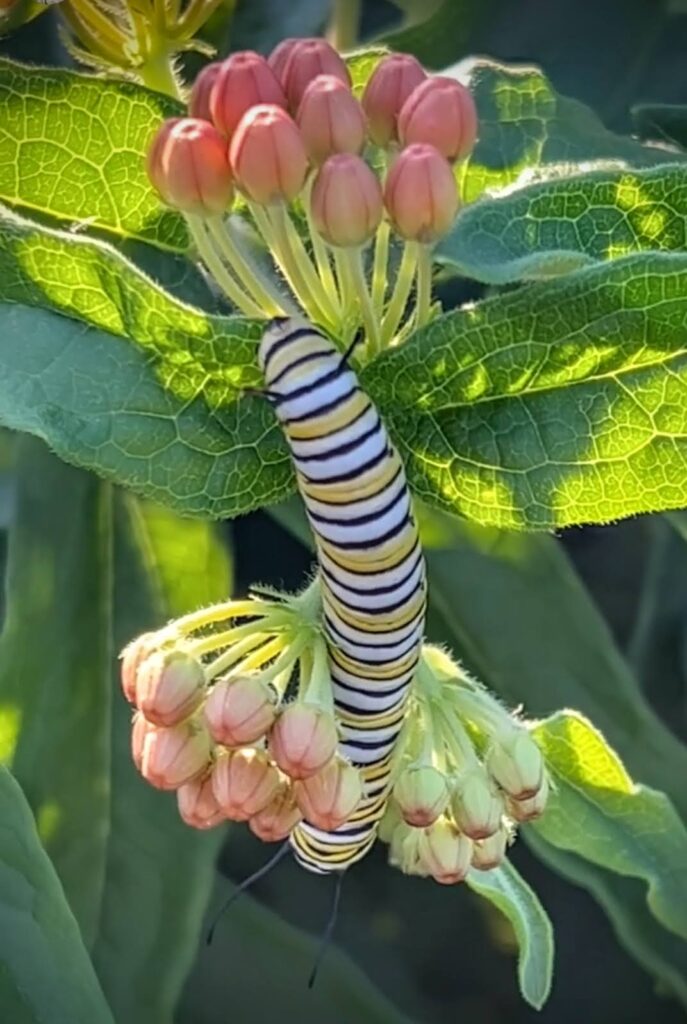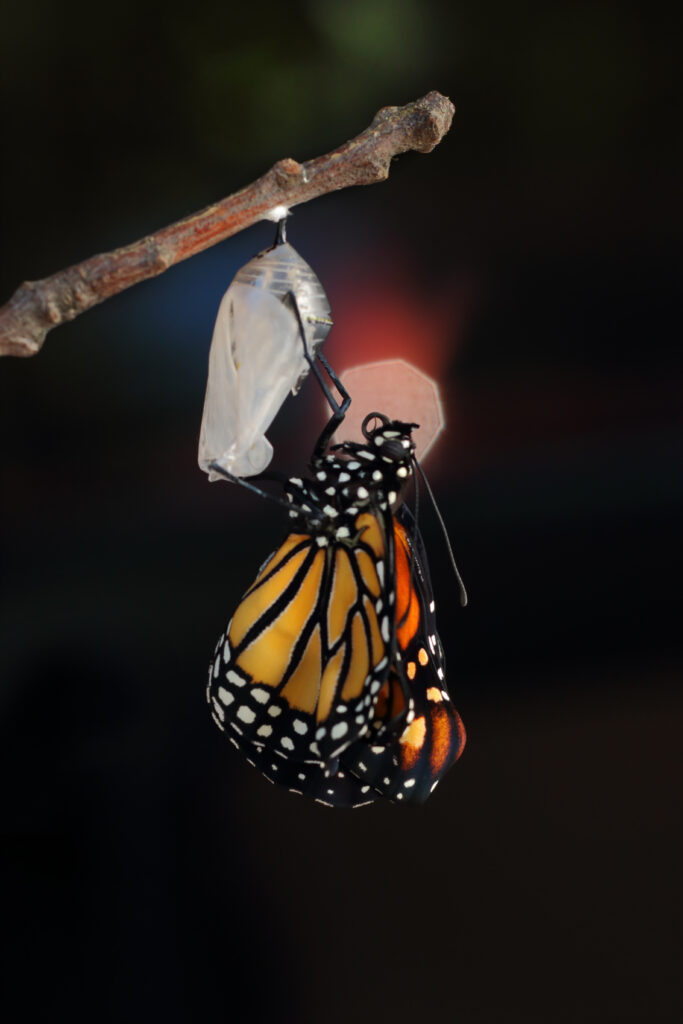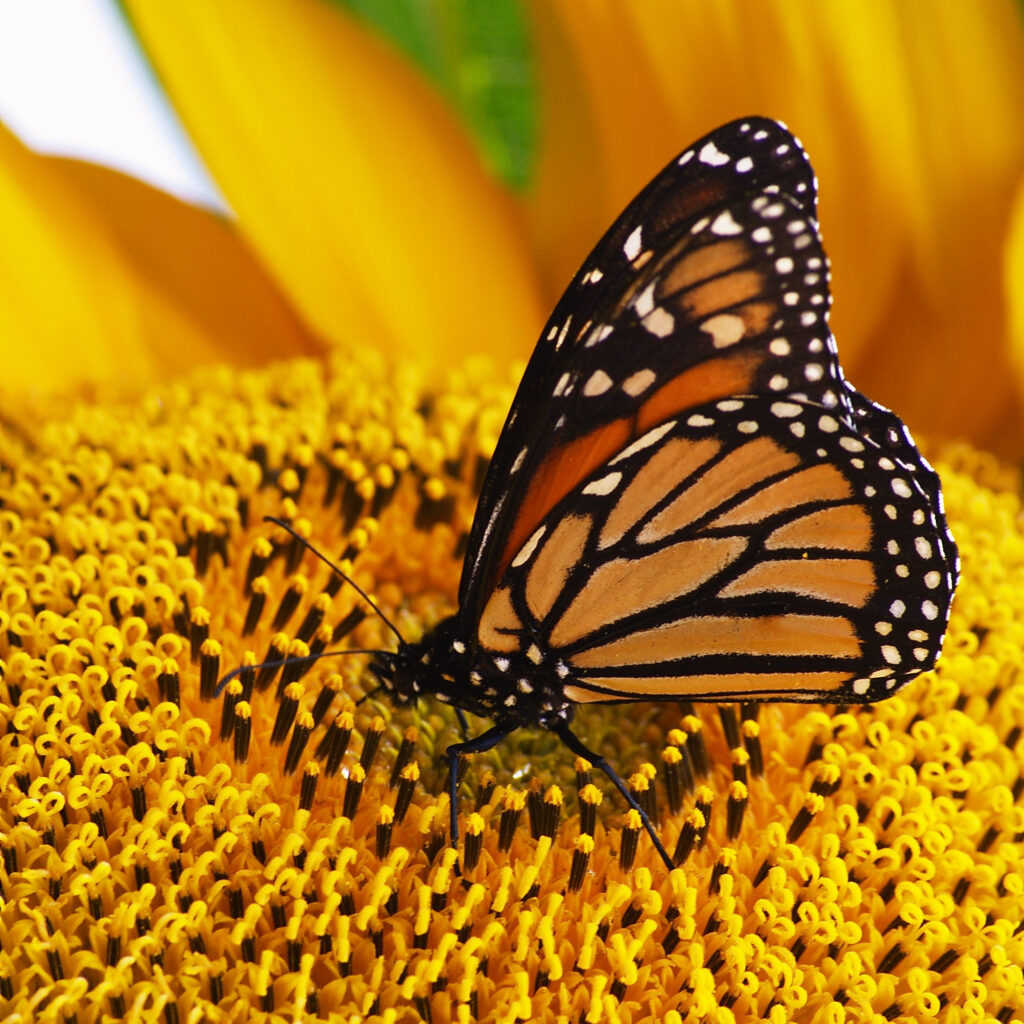Milkweed, Monarchs & Pollinators
The Milkweed, Monarchs & Pollinators WCMG volunteer team works to educate the community about the importance of monarchs and Minnesota pollinators along with actions all of us can take to help preserve these vital resources.
This team can be found at school events, city and church festivals, and garden club presentations and other public events. The team also collects native plant seeds from pollinator gardens throughout Washington County and makes them available for others to plant throughout the community to encourage native plant gardens for our pollinators to survive and thrive.



Monarchs & Pollinators
Scientists estimate that one out of every three bites of food we eat exists because of animal pollinators like bees, butterflies and moths, birds & bats, flies & beetles and other insects. There are more than 455 species of bees in Minnesota including our state bee the Rusy Patched bumblebee, a federally endangered species. Pollination is critical to our future and is impacted by climate change and other threats. The U of M Bee Lab provides resources about bee health, diversity and conservation.
The future of the iconic monarch butterfly, our state butterfly, is dependent on the supply of Common Milkweed (Asclepias syriaca) plants for their eggs and caterpillars. There are many varieties of milkweed specific to each region of North America but the common milkweed plant is the only plant that can be found growing in every region of their migratory path nationwide. Milkweed plants are the only host plant monarch caterpillars can eat, they are called a selective species for this reason; and without milkweed there will be no more monarchs.
The Monarch Joint Venture (MJV) is a partnership of federal and state agencies, non-governmental organizations, businesses and academic programs working together to protect the monarch migration across the United States.
During the 2022-2023 overwintering season more than 250 volunteers surveyed 272 overwintering sites, tallying a total of 335,479 monarch butterflies observed across the western overwintering sites, an increase of 88,242 monarchs!
For current updates about the monarch population, learn more at the Monarch Joint Venture.

History of the MMP team
This team of Washington County Master Gardener volunteers began in 2012 when two volunteers became aware of the plummeting number of monarchs and began a quest to educate the community about this serious issue.
They visited the UMN Monarch Lab to begin their research. They learned that there were, and still are, many pressures on the monarch population: logging in their Mexican sanctuaries, US EPA changes regarding ethanol, Round-Up Ready corn and soybeans, neonicotinoids, and many more. Thus began the journey into learning – and teaching about these lovely creatures.
The University of Minnesota Monarch Lab integrated into the Monarch Joint Venture in spring of 2019 as MJV transitioned to be a standalone nonprofit organization.
Find the Milkweed, Monarchs & Pollinators team at upcoming community education events and festivals to learn more about the plights of monarchs, bees and other pollinators. Sign up to receive our monthly newsletter to be notified of the next Monarchs, Milkweed & Pollinators event in Washington County.


